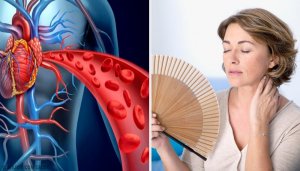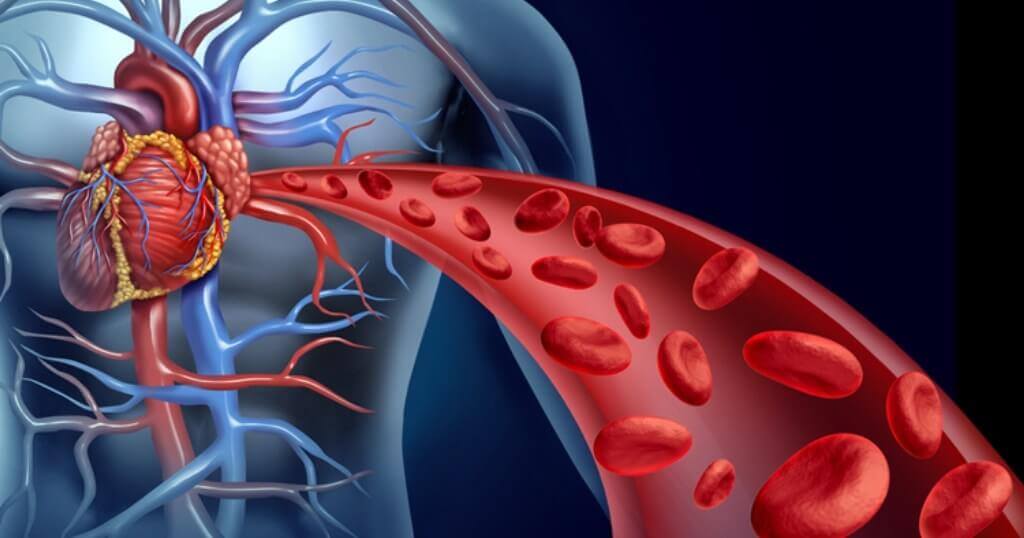How Menopause Affects Heart Health


Reviewed and approved by the doctor Maricela Jiménez López
Menopause is when a woman no longer menstruates, and many may not give it much thought. Have you ever stopped to think that menopause affects cardiac health? During this time, your body stops producing as many important hormones like estrogen and progesterone. For this reason, you’ll be more susceptible to a variety of conditions, as discussed below.
Listen to your body to avoid any negative impacts to your health.
Issues with blood flow

Lower levels of estrogen are a driving factor in heart issues after menopause.
This is because estrogen plays a major role in the flexibility of the inner layer of artery walls.
- Estrogen aids the expansion and contraction that enables blood to flow.
- Even though estrogen offers many benefits to your body, some physicians don’t recommend hormone therapy.
It’s recommended that you ask your cardiologist if it’s right for you. They will work with your gynecologist or endocrinologist to make any appropriate adjustments.
These precautions are necessary if you are at risk or have a history of stroke or cardiac disease.
See also:
Changes in blood sugar levels
Changes in estrogen and progesterone levels impact cellular responses to insulin. That’s why a decrease or change in their levels can lead to fluctuations in blood sugar levels.
If you’ve had issues with diabetes, pre-diabetes, or glucose levels, it’s important that you monitor your health by getting a check-up every six months.
If you have diabetes, it’s important to pay close attention to your blood sugar levels. Avoid making lifestyle changes on your own; consult with a physician who can guide you.
These measures are essential, since menopause also affects cardiac health by altering your blood and blood vessels.
More commonly, arteries and veins lose some pressure, causing a drop in strength and elasticity. All of this can lead to a rise in blood pressure.
Weight gain

Menopause slows your metabolism as well as your digestion, leading to weight gain.
Women who are overweight are at a higher risk of cardiac problems ranging from rising blood pressure to heart attacks.
Maintain a healthy lifestyle after the age of 35 to protect your heart health. You can do this by:
- Eating a diet that’s as healthy and natural as possible
- Getting 30 minutes of exercise a day
- Drinking plenty of water
- Seeing a physician every 6 months
Check out this article:
Ideal Diet for Losing Weight During Menopause
Major changes in cholesterol levels
Another way menopause can influence your cardiac health is by making you more likely to experience major fluctuations in your blood cholesterol levels.
This happens because estrogen levels impact LDL cholesterol levels, known as the “bad” cholesterol.
- It’s crucial that you always keep your hormones in balance.
- If you’ve never taken the time to monitor them, ask your gynecologist which blood tests would be appropriate.
High cholesterol leads to blocked veins and arteries. It can also cause unexplained bruising and even heart attacks.
Changes in heart rate

Your heart rate can also be affected by menopause. This is caused by blockages in the veins that are created by hormonal changes, which alter blood circulation.
If you’ve been previously diagnosed with cardiac problems, it’s very important that you pay more attention to the symptoms your doctor asked you to monitor.
In any event, it’s important that you inform your cardiologist if you notice abnormal palpitations and dizziness.
Keep in touch with your physicians
Many women get through menopause without incident. However, it’s always a good idea to see the following physicians at least once. At best, they’ll confirm that everything is fine, and you’ll be able to relax.
- The first physician you should see is a gynecologist. They will look over the changes brought on by menopause. If you’re in good health, they might be the only one you need to consult.
- You should also see a cardiologist if your gynecologist notices a change in your cholesterol levels. If you have a history of cardiac problems, keep to your regular check-ups.
All cited sources were thoroughly reviewed by our team to ensure their quality, reliability, currency, and validity. The bibliography of this article was considered reliable and of academic or scientific accuracy.
- Berry, J. D., Dyer, A., Cai, X., Garside, D. B., Ning, H., Thomas, A., … Lloyd-Jones, D. M. (2012). Lifetime Risks of Cardiovascular Disease. New England Journal of Medicine. https://doi.org/10.1056/NEJMoa1012848
- Lobo, R. A., Davis, S. R., De Villiers, T. J., Gompel, A., Henderson, V. W., Hodis, H. N., … Baber, R. J. (2014). Prevention of diseases after menopause. Climacteric. https://doi.org/10.3109/13697137.2014.933411
- Hu, F. B., Grodstein, F., Hennekens, C. H., Colditz, G. A., Johnson, M., Manson, J. A. E., … Stampfer, M. J. (1999). Age at natural menopause and risk of cardiovascular disease. Archives of Internal Medicine. https://doi.org/10.1001/archinte.159.10.1061
- Ayers, B. N., Forshaw, M. J., & Hunter, M. S. (2011). The menopause. Psychologist. https://doi.org/10.1016/S0140-6736(98)05352-5
This text is provided for informational purposes only and does not replace consultation with a professional. If in doubt, consult your specialist.








